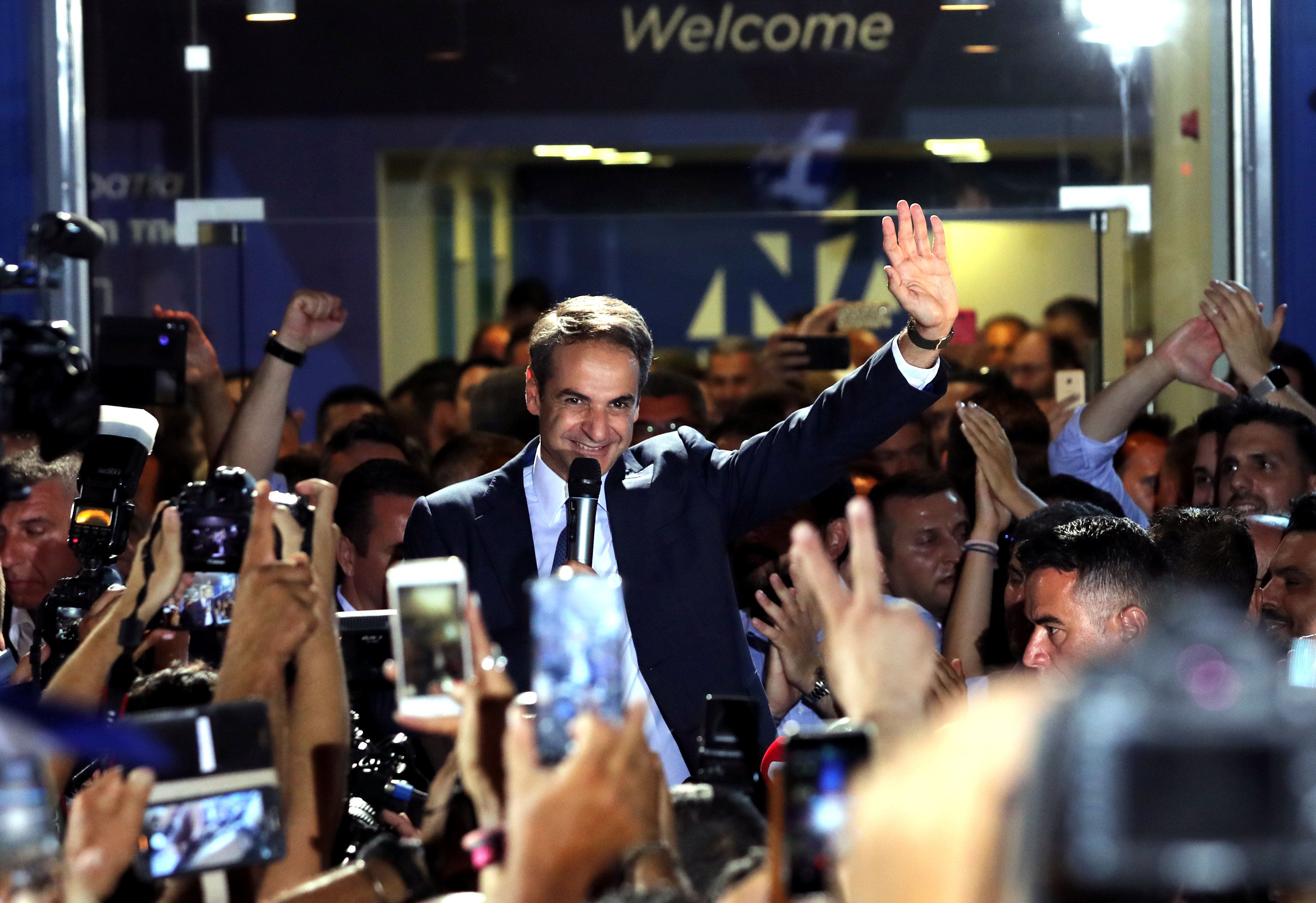European Parliament elections in May didn't go well for Greek Prime Minister Alexis Tsipras as his radical-turned-mushy-left Syriza party was drubbed by the resurgent center-right New Democracy (ND) party by 9.3 points. The scale of the loss prompted Tsipras to call national elections early to staunch the political bleeding.
It didn't work. His party lost to ND and its US-educated, pro-market leader Kyriakos Mitsotakis this weekend by more than 8 percentage points; that's a large enough margin for New Democracy to secure a return to political power, as well as a comfortable majority in Greece's parliament.
Some key points for consideration beyond the headlines you'll be reading this week:
This next one will be the most stable Greek government we'll see for a while. For years, one of the defining features of the Greek electoral system was the 50-seat bonus the first-place party received in Greece's 300-member parliament for, well, coming in first. The idea was that the bonus would help provide a political cushion for the governing party and the political space it needs to move its agenda forward.
But in 2016, Syriza abolished the 50-seat bonus, arguing that it's undemocratic (which has a certain logic to it). Changes to Greece's election laws must be grandfathered in though, so this round of elections kept the 50-bonus-seat system in place, and the next one will do away with it.
As it is, Greek governments have struggled to stay in power, particularly given the politically ugly choices they've had to make (this was the fifth snap election since 2012), and given the depth of Greece's crisis, plenty more tough decisions will be needed in the coming years. Structurally speaking, this new Mitsotakis-led government is looking like the last with any kind of political crutch to stand on.
The return of political protests? When Greece first started implementing austerity measures demanded by its international creditors (primarily the IMF, the European Central Bank and the European Commission, aka "the Troika"), it was beset by large-scale protests that caused millions in property damage in downtown Athens on a semi-regular basis. Those protests largely died down once Tsipras took office—his critics accused him of having been the driving force behind those original protests, while his supporters argued that the protests died down because the Greek people recognized they finally had a prime minister in Tsipras that was willing to fight for them.
It could also be that the Greek people just got protest-fatigue. Regardless, the return of New Democracy—one of the two establishment parties that first drove Greece into its current mess—has the potential to touch off the kind of political violence the country hasn't seen since Syriza took power in 2015.
The comeback kids. But if there's a bigger lesson for the world to take away from Greek elections this Sunday, it's this: even populist movements run out of steam. Syriza was one of the very first populist governments to come to power, though its electoral victory was mostly written off as a product of Greece's unusually dire circumstances rather than as part of a larger anti-Establishment movement rippling around the world.
Whatever the reason, Syriza was unable to deliver on its lofty promises of rolling back austerity measures and bending Brussels to its will. It's not enough to make promises; you also have to deliver.
And four years later, the Greek people decided to bring back the party in office before Syriza stormed to power (albeit one that's under new leadership).
It's a reminder that populism, like politics generally, is cyclical.
UPDATE: This text has been updated to reflect Mitsotakis' victory in the election.
